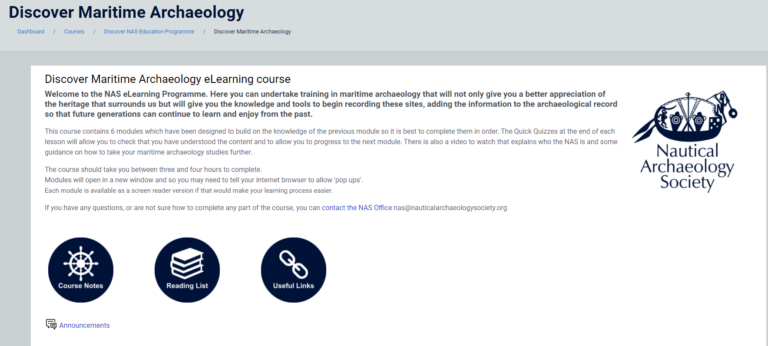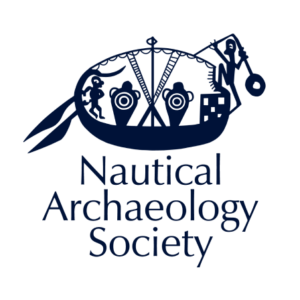
Discover Maritime Archaeology eLearning course

Site location: United Kingdom
SARCC will mainstream nature-based solutions (NBS) into coastal management and policy making, where they are integrated intThe Discover Maritime Archaeology eLearning course is the entry level to the Nautical Archaeology Society’s Education Programme. No prior knowledge or training is required to complete this course. This online course allows people to learn the basic theory of maritime archaeology at their own pace. It demonstrates to participants that maritime archaeology is not just about shipwrecks, and it is certainly not all underwater. The six modules in this course cover the following topics: introduction to maritime archaeology, site types, artefact investigation, legislation and recording and monitoring sites. The legislation module outlines the mechanisms that are in place to protect our heritage that is underwater, on the foreshore and on land. Participants will learn how this applies to visiting or investigating historic sites. There is a particular emphasis on promoting the UNESCO 2001 Convention on the Protection of the Underwater Cultural Heritage. This theory course and accompanying practical Recorder Skills Day is the first of the two components of the NAS Foundation qualification, which will allow graduates to participate in NAS fieldwork in the UK and overseas. defences. The project builds the capacity of urban leaders, decision-makers and officers involved in coastal flood defences to deploy NBS and understand the additional benefits that they offer in comparison to traditional grey infrastructure. The project area ranges from Cornwal in southwest England, to the Flemish coastline. MAT are assessing the under-used archaeological, historical and palaeo-environmental information as data sources to provide insights into the impact of human activities along the coastline from the early Holocene to the mid-20th century. Analysis of the material is demonstrating long-term patterns of coastal change . This knowledge is providing a positive contribution to the coastal management, decision making process and to raise stakeholder awareness. It will be particularly valuable where nature based solutions are to be reinstated and there is a desire to work in tandem with long term natural processes rather than in opposition. The outputs will contribute to the UN Decade of Ocean Science and Sustainable development and the UN sustainable development goals 11, 13 and 14.
